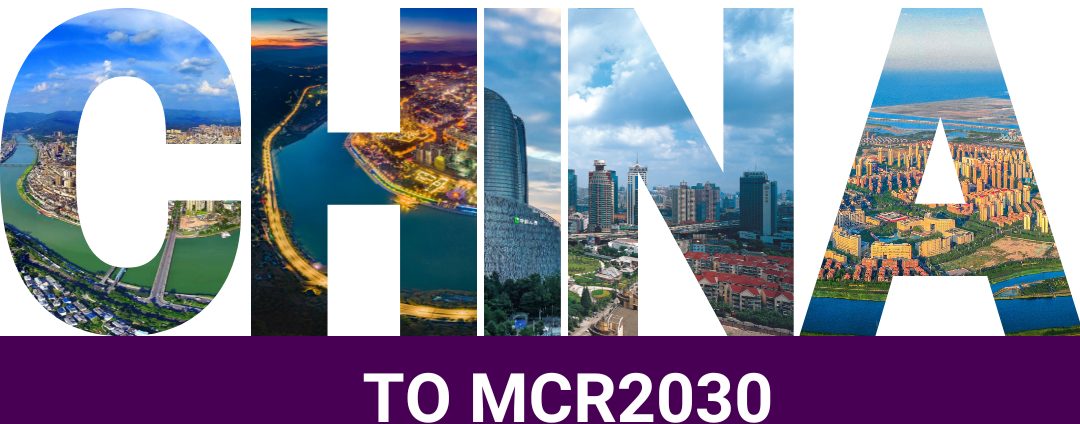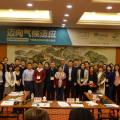Making Cities Resilient 2030: Strengthening Local Disaster Resilience in China Phase 2 Completed

In order to further support Chinese cities in improving disaster risk reduction, climate adaptability, and urban resilience, the ICLEI East Asia Secretariat and the UNDRR Northeast Asia Office jointly carried out a series of capacity-building activities in China under the initiative of the Making Cities Resilient (MCR) since 2019. From April 2022 to December 2023, the Phase 2 MCR2030: Strengthening Local Disaster Resilience in China was completed with success and fruitful outcomes.
At the end of 2023, 5 cities officially joined the MCR2030 initiative through the program, namely Chengdu, Guangyuan, Lishui, Shanghai Changning District, and China-Singapore Tianjin Eco-City. Meanwhile, recommended by the ARISE network, Zhuji City of Shaoxing Municipality, Zhejiang Province also signed up for the MCR2030 network.
In total, 6 Chinese cities at district and municipality levels have joined the MCR2030 initiative in 2023, representing a population of more than 28 million (based on the national resident population census data in 2021) committed to reduce disaster risk and build resilience.

Photo 1: City Representatives Received the MCR2030 Certificates in November, 2023
On 9 November 2023, co-hosted by ICLEI East Asia and UNDRR ONEA-GETI, the Resilient City China Symposium was successfully held in Kunming, Yunnan Province, engaging more than 100 stakeholders including local governments, sectoral actors from non-profit and private sector, and leading experts to identify challenges and explore opportunities and prospects of urban resilience building in China and beyond. Exchanges and learning topics included disaster risk reduction, climate change adaptation actions, nature-based solutions, resilient city practices, financing for resilience, and multi-stakeholder dialogues. Furthermore, the Summary for Policymakers of Resilient Cities China Report 2023 was launched at the Symposium, outlining key steps to enhance urban resilience in the context of China.
As a pioneer event of the above fields targeting local governments in China primarily, this Symposium provided a platform to capture the latest urban resilience research and city progress in China, and mobilized cross-sectoral knowledge and resources to accelerate urban resilient development.
During Phase 2, 5 local governments from Guangzhou, Foshan, Shenzhen, Beijing, and China-Singapore Tianjin Eco-City, accounting for approximately 60 representatives from relevant departments, participated in the 10-Essential Disaster Resilience Scorecard training sessions. The aim of the sessions was to provide a systematic assessment of urban resilience and disaster risk reduction, which can help cities get a chance of ice breaking for cross-sectoral communication and collaboration. The workshops also help local governments to realize the existing knowledge and expertise that they might not be utilizing effectively. One of the most important outcomes of workshops is deepened understanding of resilience and relevant practices.

Photo2:From April 10 to 11, 2023, the Resilient City Capacity Building Workshop was held in Guangzhou
As the global co-chairs of MCR2030, ICLEI and UNDRR will continue this collaboration and build up a systematic perspective on increasing urban resilience in China, including further research on the connections between urban resilience and existing urban initiatives in Chinese cities, like Sponge Cities, Climate Adaptive Cities, and Emergency Response Planning, formation of a risk-based governance mechanism that ensures multi-stakeholder participation, setting up categories to differentiate cities based on different geographic and socio-economic conditions, ensuring the city’s resilience plan is just and socially inclusive, among others.




